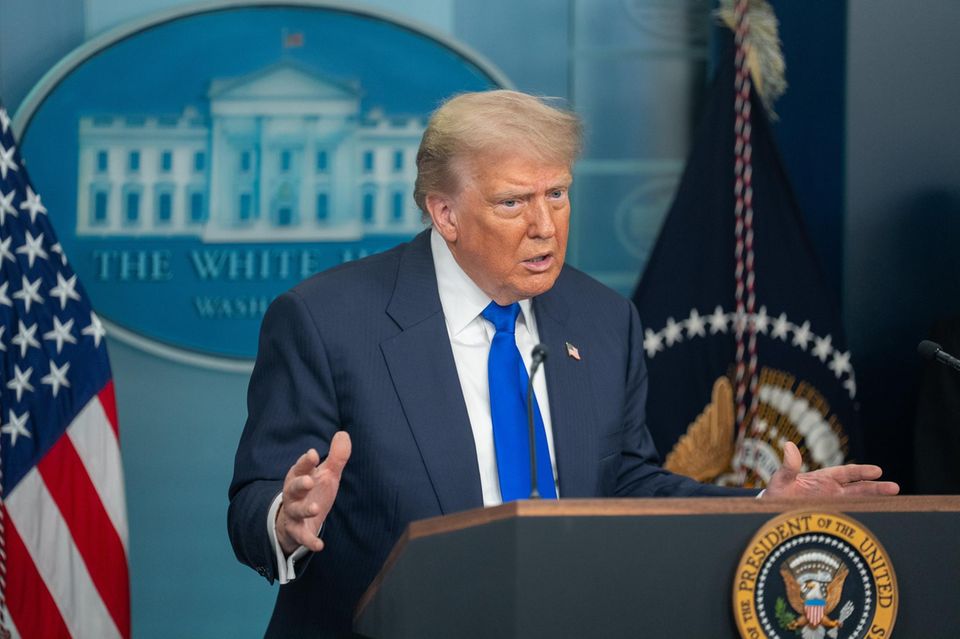Stock market: Party mood on US stock exchanges – is Trump already forgotten?

Trade conflicts? What trade conflicts? US stock markets are on a steep upward trajectory. European investors have so far seen little of it – for one simple reason.
The comeback is impressive. After Donald Trump took office, the US stock market initially performed poorly – especially in light of the US president's erratic tariff policy. In contrast, prices elsewhere – such as in Europe – performed so well that the end of US dominance on the stock markets was already being declared. Apparently, too soon.
The US stock market has staged an impressive comeback in recent weeks, significantly narrowing the gap to Europe. In numbers: In the second quarter, the US standard index, the S&P 500, shot up by around ten percent, while the European Stoxx 600 managed less than two percent. European stocks have gained around nine percent since the beginning of the year, while Wall Street has gained six percent – both calculated in the home currency. European investors in the S&P have even lost six percent due to the weak dollar. The American market has thus lost some of its exceptionality – but only because prices in the rest of the world are rising even more strongly, and not because the US stock markets are in decline.
The share price gains in Europe are hardly surprising – the investment offensive announced by the German government has contributed significantly. The hope is that this will help Europe's most important economy regain momentum.
The recent price gains in the US, however, are unexpected. The major fear was that Trump's tariffs would drive up inflation there and cause a permanent collapse in economic growth. However, price increases have so far been moderate. And while gross domestic product declined in the first quarter on an annualized basis, this was primarily due to unusually high imports. Many importers had used the time before the tariff storm triggered by Trump in April to bring goods into the United States in time.
US stock markets at record levelsTrump's policies appear to have had no significant impact on inflation and growth so far. The labor market is robust, as is consumer sentiment. US companies have not yet suffered any major profit losses. Against this backdrop, US stock markets are once again trading at record levels. Last week, the S&P 500 reached its highest level, last seen in February. The fact that Trump has triggered long-unthinkable upheavals and shaken the foundations of US democracy doesn't change this.

The US stock market is behaving as if nothing has changed. As before Trump took office, investors are betting on the success of artificial intelligence and that their huge investments will eventually pay off. According to the Financial Times, the five largest US technology companies still account for almost 30 percent of the value of the US stock market. Wall Street is also being supported by private investors who see price declines as buying opportunities.
Forecasts are ignoredIn addition, companies are buying back their own shares in record quantities. "The weak dollar is helping US companies in this," says Chris-Oliver Schickentanz, chief investment strategist at Capital Vermögens-Management, in an interview with ntv. There is also hope "that the Trump agenda is slowly shifting away from tariff and trade policy toward tax relief and thus positive stimulus for the economy."
Many analysts are skeptical, predicting declining corporate profits, rising inflation, and weaker economic growth. These forecasts are being ignored by the stock market. However, the mood may soon change: The suspension of many of the tariffs imposed by Trump expires next week, and then things could get turbulent again on Wall Street.
This article first appeared on ntv.de. The news portal, like Capital, is owned by RTL Deutschland.
capital.de





